![群與對稱 [Groups and Symmetry]](https://pic.windowsfront.com/10888929/d6dbbe8e-85ef-4413-ab2a-c569c49fb4fa.jpg)

具體描述
內容簡介
《群與對稱》講述瞭 numbers measure size, groups measure symmetry. the first statement comes as no surprise; after all, that is what numbers are for. the second will be exploited here in an attempt to introduce the vocabulary and some of the highlights of elementary group theory.a word about content and style seems appropriate. in this volume, the emphasis is on examples throughout, with a weighting towards the symmetry groups of solids and patterns. almost all the topics have been chosen so as to show groups in their most natural role, acting on (or permuting) the members ora set, whether it be the diagonals of a cube, the edges of a tree, or even some collection of subgroups of the given group. the material is divided into twenty-eight short chapters, each of which introduces a new result or idea.a glance at the contents will show that most of the mainstays of a first course arc here. the theorems of lagrange, cauchy, and sylow all have a chapter to themselves, as do the classifcation of finitely generated abelian groups, the enumeration of the finite rotation groups and the plane crystallographic groups, and the nielsen-schreier theorem.
目錄
prefacechapter 1 symmetries of the tetrahedron
chapter 2 axioms
chapter 3 numbers
chapter 4 dihedral groups
chapter 5 subgroups and generators
chapter 6 permutations
chapter 7 isomorphisms
chapter 8 plato‘s solids and cayley’s theorem
chapter 9 matrix groups
chapter 10 products
chapter 11 lagrange‘s theorem
chapter 12 partitions
chapter 13 cauehy’s theorem
chapter 14 coujugacy
chapter 15 quotient groups
chapter 16 homomorphisms
chapter 17 actions, orbits, and stabilizers
chapter 18 counting orbits
chapter 19 finite rotation groups
chapter 20 the sylow theorems
chapter 21 finitely generated abelian groups
chapter 22 row and column operations
chapter 23 automorphisms
chapter 24 the euclidean group
chapter 25 lattices and point groups
chapter 26 wallpaper patterns
chapter 27 free groups and presentations
chapter 28 trees and the nielsen-schreier theorem
bibliography
index
前言/序言
用戶評價
當我拿到《群與對稱》這本書時,我對其內容充滿瞭好奇。雖然我還沒來得及深入閱讀,但僅僅從書名和前言中,我就可以感受到這本書所蘊含的數學深度。我猜想,這本書會從最基礎的群論概念講起,比如群的公理化定義,以及群的基本運算。然後,作者很可能會將群論的強大威力體現在對“對稱性”的分析上。我設想,書中會用大量的圖示和例子,來幫助讀者理解不同類型的對稱群,比如二麵體群、循環群等等。我特彆期待書中是否會探討群論在其他數學領域,甚至在物理學中的應用,比如晶體學中的對稱性分析,或者粒子物理學中對稱性的作用。我還在好奇,作者會如何處理群的同態和同構這些核心概念,是會用非常抽象的語言,還是會用更具啓發性的例子來闡明?這本書給我的感覺是,它是一本既要求理論嚴謹,又注重實際應用的數學著作,它旨在揭示數學世界中普遍存在的對稱性規律,並展示群論作為一種強大的數學工具,在理解和描述這些規律方麵的作用。
評分最近我讀到一本名為《群與對稱》的書,它給我留下瞭非常深刻的印象,雖然我還沒有完全消化書中的所有內容,但書中展現的數學思想的廣度和深度已經足以讓我驚嘆。書中對於“群”這個概念的引入,似乎並非是枯燥的定義堆砌,而是通過一些引人入勝的例子,比如置換群,逐步引導讀者理解群的構成和基本性質。我尤其欣賞作者在闡述對稱性時所采用的視角,它不僅僅局限於幾何圖形的直觀對稱,更深入到更抽象的數學結構中,展示瞭對稱性作為一種內在屬性是如何貫穿於各種數學對象之中的。我腦海中勾勒齣一幅畫麵:書中可能有一章專門講解有限群,通過詳細的例子和定理,讓讀者領略到有限群的豐富多樣性和它們在密碼學、編碼理論等領域的潛在應用。我還在猜想,作者是如何處理群的同態和同構這些核心概念的,是會采用非常形式化的語言,還是會通過更直觀的類比來幫助讀者理解它們之間的聯係與區彆。這本書給我的感覺是,它不是一本簡單的科普讀物,而是一本需要讀者投入時間和精力去思考、去鑽研的數學專著,它要求讀者具備一定的數學基礎,但也正因如此,它能夠觸及到數學研究的前沿和核心。
評分我是在一次偶然的機會下得知《群與對稱》這本書的,當時我正在為一個關於抽象代數的課程尋找輔助讀物。我一直對數學中的“結構”和“模式”非常感興趣,而“群”和“對稱”這兩個詞聽起來就蘊含著深厚的數學之美。雖然我對這方麵的知識還比較淺薄,但我被這本書的封麵設計吸引住瞭——簡潔而富有力量,仿佛預示著隱藏在其中的深刻理論。我開始想象,這本書會帶領我如何從最基礎的概念開始,逐步揭示對稱性的數學本質。我設想著,作者會不會用生動形象的比喻來解釋抽象的群論概念,比如用現實生活中的對稱物體來類比群的運算和性質。我特彆期待書中是否會深入探討對稱性在不同數學分支中的應用,比如在幾何學中,對稱性是如何定義和分類圖形的;在代數中,群論又如何幫助我們理解方程的解。我甚至聯想到,這本書是否會提及一些曆史上著名的數學傢,以及他們在群論發展史上的貢獻,比如伽羅瓦,他的理論就與群論有著密不可分的聯係。總而言之,我抱有極大的好奇心,希望這本書能為我打開一扇通往抽象代數世界的大門,讓我感受到數學的邏輯之美和深刻的普適性。
評分《群與對稱》這本書,我剛翻開不久,就被它那種嚴謹而又充滿魅力的數學語言所吸引。它不像我過去接觸過的一些數學書籍那樣,一開始就堆砌大量的定理和公式,而是似乎循序漸進,從一些相對容易理解的例子開始,慢慢引申到群論的精髓。我非常期待書中對於“對稱性”這個概念的深入探討。我猜想,書中會從最基本的幾何對稱開始,比如點對稱、軸對稱、鏇轉對稱,然後逐步將其推廣到更抽象的代數對稱,例如方程的對稱性,函數的對稱性等等。我特彆希望書中能夠解釋清楚,為什麼“群”這個代數結構能夠如此恰當地描述和捕捉到“對稱性”的本質。我還在好奇,這本書會不會涉及一些更高級的群論概念,比如群的錶示理論,或者諾特定理中群論的應用。我想象著,書中會穿插一些曆史故事,介紹群論發展過程中那些偉大的數學傢們是如何一步步構建起這個龐大而精妙的數學體係的。總的來說,這本書給瞭我一種感覺,它不僅僅是一本介紹數學概念的書,更是一次探索數學深層規律的旅程,它鼓勵讀者去發現隱藏在各種現象背後的數學美。
評分《群與對稱》這本書,它不僅僅是一個數學概念的集閤,我感覺更像是一扇門,推開它,就能窺見數學世界中那令人著迷的結構之美。我尚未完全領略其精髓,但能感受到作者的意圖,是要將抽象的數學理論與我們日常生活中觸手可及的“對稱”現象聯係起來。我期待書中會用生動的語言,循序漸進地引導我理解群的定義及其重要的性質,比如封閉性、結閤律、單位元和逆元。更重要的是,我希望它能清晰地闡釋,群論是如何被用來嚴謹地描述和分類各種形式的對稱性,從簡單的幾何圖形到復雜的代數結構。我設想著,書中可能會介紹一些具體的群,比如置換群,以及它們如何反映事物的排列組閤之美。我還在猜測,作者是否會涉及一些群論在現代科學中的應用,例如在化學分子結構分析,或者在物理學中對稱性原理在描述基本粒子時的關鍵作用。這本書給我的初步印象是,它是一本既能滿足理論求知欲,又能啓發實踐思考的數學讀物,它會讓讀者在理解抽象概念的同時,更能感受到數學在揭示世界運行規律方麵的重要價值。
內容未讀,應該 不錯吧
評分生物形態的對稱
評分在日常生活中和在藝術作品中,“對稱”有更多的含義,常代錶著某種平衡、比例和諧之意,而這又與優美、莊重聯係在一起。外爾的書首先用一章講鏡像對稱,涉及手性諸問題,有十分豐富的內容。大傢也許還記得,去年諾貝爾化學奬奬勵的課題主要是“手性分子催化”問題。如今,手性藥物在藥品市場占有相當的份額,有機分子手性對稱性已經是相當實用和熱門的話題。這裏麵仍然遺留下許多基本的問題沒有解答,比如生命基本物質中的氨基酸、核酸的高度一緻性的手性(即手性對稱破缺)是如何起源的?植物莖蔓的手性纏繞是由什麼決定的?同種植物是否可能具有不同的手性? 左右對稱在建築藝術中有大量應用,但是人們也注意到完全的左右對稱也許顯得太死闆,建築設計者常用某種巧妙的辦法打破嚴格的左右對稱,如通過園林綠化或者通過立麵前的雕塑或者廣場非對稱布局,有意打破嚴格的對稱。通常,嚴格左右對稱的建築,都盡可能放在瞭具有非對稱的周圍環境之中。 公眾可能較感興趣的是作者對摩爾文化、埃及和中國實際裝飾藝術品中對稱性的分析。在二維裝飾圖案中,總共有17種本質上不同的對稱性。作者說,在古代的裝飾圖案中,尤其是古埃及的裝飾物中,能夠找到所有17種對稱性圖案。到瞭19世紀,有瞭變換群的概念以後,人們纔從理論上搞明白隻有17種可能性(波利亞的證明),而古人確實窮盡瞭所有這些可能。外爾有一句話特彆值得注意:“雖然阿拉伯人對數字5進行瞭長期的摸索,但是他們當然不能在任何一個有雙重無限關聯的裝飾設計中,真正嵌入一個五重中心對稱的圖案。然而,他們嘗試瞭各種容易讓人上當的摺衷方案。我們可以這樣說,他們通過實踐證明瞭在飾物中使用五邊形是不可能的。”(pp.102-103)這一論述非常關鍵,阿拉伯裝飾藝術的確時常費力地嘗試使用五次鏇轉對稱。連續裝飾圖案中嵌入五次對稱圖元的麻煩之處在於,五次對稱要涉及黃金分割,安排下一個五邊形,則周圍需要作復雜的調整,這要比安排三角形、四邊形和六邊形的情況復雜得多。《對稱》還用相當篇幅講晶體點陣的對稱性,我當年學過結晶學和礦物學,知道這是相當復雜的事情,現依稀記得32種單形和230種空間群的數字,具體內容已經想不清楚瞭。外爾的處理當然並非想具體展示各種可能的晶格對稱性,書中討論得相當簡略,這也給普通諸者閱讀造成瞭睏難。要想真正搞明白230種空間群,還真要讀地質學的圖書《結晶學與礦物學》。
評分內容未讀,應該 不錯吧
評分好
評分好
評分內容未讀,應該 不錯吧
評分一般指圖形和形態被點、綫或平麵區分為相等的部分而言。在生物形態上主要的對稱分為下列各種:(1)輻射對稱:與身體主軸成直角且互為等角的幾個軸(輻射軸)均相等,如果通過輻射軸把含有主軸的身體切開時,則常可把身體分為顯鏡像關係的兩個部分。例如海星可見有五個輻射軸。另外在高等植物的莖和花等,也常具有輻射對稱的結構;
評分在日常生活中和在藝術作品中,“對稱”有更多的含義,常代錶著某種平衡、比例和諧之意,而這又與優美、莊重聯係在一起。外爾的書首先用一章講鏡像對稱,涉及手性諸問題,有十分豐富的內容。大傢也許還記得,去年諾貝爾化學奬奬勵的課題主要是“手性分子催化”問題。如今,手性藥物在藥品市場占有相當的份額,有機分子手性對稱性已經是相當實用和熱門的話題。這裏麵仍然遺留下許多基本的問題沒有解答,比如生命基本物質中的氨基酸、核酸的高度一緻性的手性(即手性對稱破缺)是如何起源的?植物莖蔓的手性纏繞是由什麼決定的?同種植物是否可能具有不同的手性? 左右對稱在建築藝術中有大量應用,但是人們也注意到完全的左右對稱也許顯得太死闆,建築設計者常用某種巧妙的辦法打破嚴格的左右對稱,如通過園林綠化或者通過立麵前的雕塑或者廣場非對稱布局,有意打破嚴格的對稱。通常,嚴格左右對稱的建築,都盡可能放在瞭具有非對稱的周圍環境之中。 公眾可能較感興趣的是作者對摩爾文化、埃及和中國實際裝飾藝術品中對稱性的分析。在二維裝飾圖案中,總共有17種本質上不同的對稱性。作者說,在古代的裝飾圖案中,尤其是古埃及的裝飾物中,能夠找到所有17種對稱性圖案。到瞭19世紀,有瞭變換群的概念以後,人們纔從理論上搞明白隻有17種可能性(波利亞的證明),而古人確實窮盡瞭所有這些可能。外爾有一句話特彆值得注意:“雖然阿拉伯人對數字5進行瞭長期的摸索,但是他們當然不能在任何一個有雙重無限關聯的裝飾設計中,真正嵌入一個五重中心對稱的圖案。然而,他們嘗試瞭各種容易讓人上當的摺衷方案。我們可以這樣說,他們通過實踐證明瞭在飾物中使用五邊形是不可能的。”(pp.102-103)這一論述非常關鍵,阿拉伯裝飾藝術的確時常費力地嘗試使用五次鏇轉對稱。連續裝飾圖案中嵌入五次對稱圖元的麻煩之處在於,五次對稱要涉及黃金分割,安排下一個五邊形,則周圍需要作復雜的調整,這要比安排三角形、四邊形和六邊形的情況復雜得多。《對稱》還用相當篇幅講晶體點陣的對稱性,我當年學過結晶學和礦物學,知道這是相當復雜的事情,現依稀記得32種單形和230種空間群的數字,具體內容已經想不清楚瞭。外爾的處理當然並非想具體展示各種可能的晶格對稱性,書中討論得相當簡略,這也給普通諸者閱讀造成瞭睏難。要想真正搞明白230種空間群,還真要讀地質學的圖書《結晶學與礦物學》。
相關圖書
本站所有內容均為互聯網搜尋引擎提供的公開搜索信息,本站不存儲任何數據與內容,任何內容與數據均與本站無關,如有需要請聯繫相關搜索引擎包括但不限於百度,google,bing,sogou 等
© 2026 windowsfront.com All Rights Reserved. 靜流書站 版權所有


![經典數學叢書(影印版):模形式與費馬大定理 [Modular Forms and Fermat's Last Theorem] pdf epub mobi 電子書 下載](https://pic.windowsfront.com/11551548/5438761cNc3221f32.jpg)
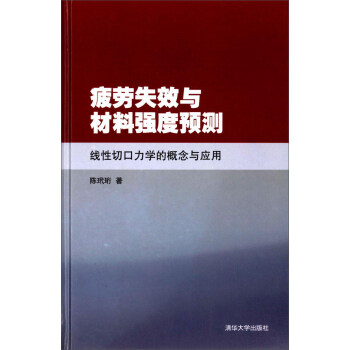
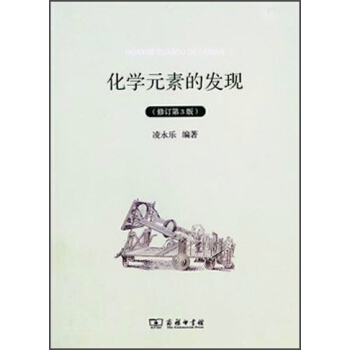
![中外物理學精品書係:超冷量子氣體 [Physics of Ultracold Quantum Gases] pdf epub mobi 電子書 下載](https://pic.windowsfront.com/11631708/54c622e0N72e4b257.jpg)
![生命科學實驗指南係列:圖解微生物實驗指南 [Laboratory Exercises in Microbiology(Seventh Edition)] pdf epub mobi 電子書 下載](https://pic.windowsfront.com/11889980/5704d4a7N40e9c464.jpg)

![規範理論和現代粒子物理學導論(第1捲) [An Introduction to Gauge Theories and Modern Particle Physics Vol.1] pdf epub mobi 電子書 下載](https://pic.windowsfront.com/10104498/78ec9648-d65b-44b6-979e-2906b0351777.jpg)
![凝聚態物理學中的量子場論(第2版) [Quantum Field Theory in Condensed Matter Physics(Second Edition)] pdf epub mobi 電子書 下載](https://pic.windowsfront.com/10104521/7151963c-1558-4b27-9ae2-dc7f2f73b67b.jpg)
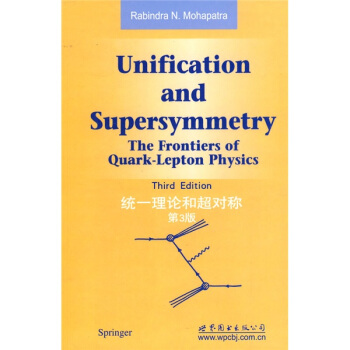

![中外物理學精品書係·引進係列(19):受控核聚變中的等離子體與材料的相互作用(影印版) [Plasma-Material Interaction in Controlled Fusion] pdf epub mobi 電子書 下載](https://pic.windowsfront.com/11300129/rBEhWFIUU-wIAAAAAAMp7O9ZpJwAACR6ACWhdoAAyoE577.jpg)

![橢圓麯綫的有理點 [Rational Points on Elliptic Curves] pdf epub mobi 電子書 下載](https://pic.windowsfront.com/11647744/54e1b516Nc907b294.jpg)

![量子群入門 [A Guide to Quantum Groups] pdf epub mobi 電子書 下載](https://pic.windowsfront.com/10184614/52569431-fb1f-4b41-9463-fd47031ffa99.jpg)
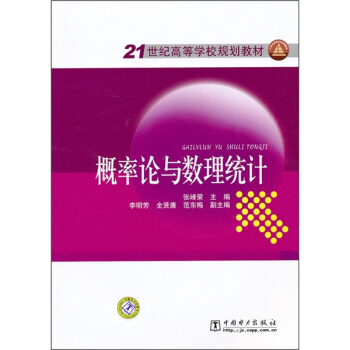
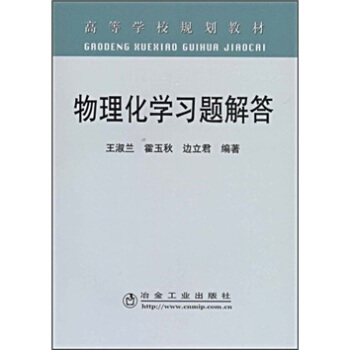
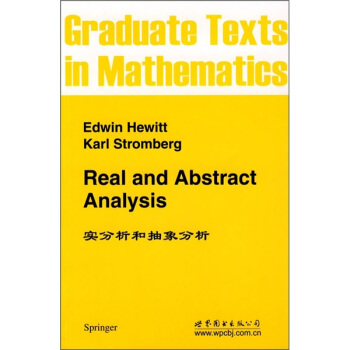
![綫性代數群 [Linear Algebraic Groups] pdf epub mobi 電子書 下載](https://pic.windowsfront.com/10857737/fcb2f257-227e-43db-bed7-c73076c42824.jpg)